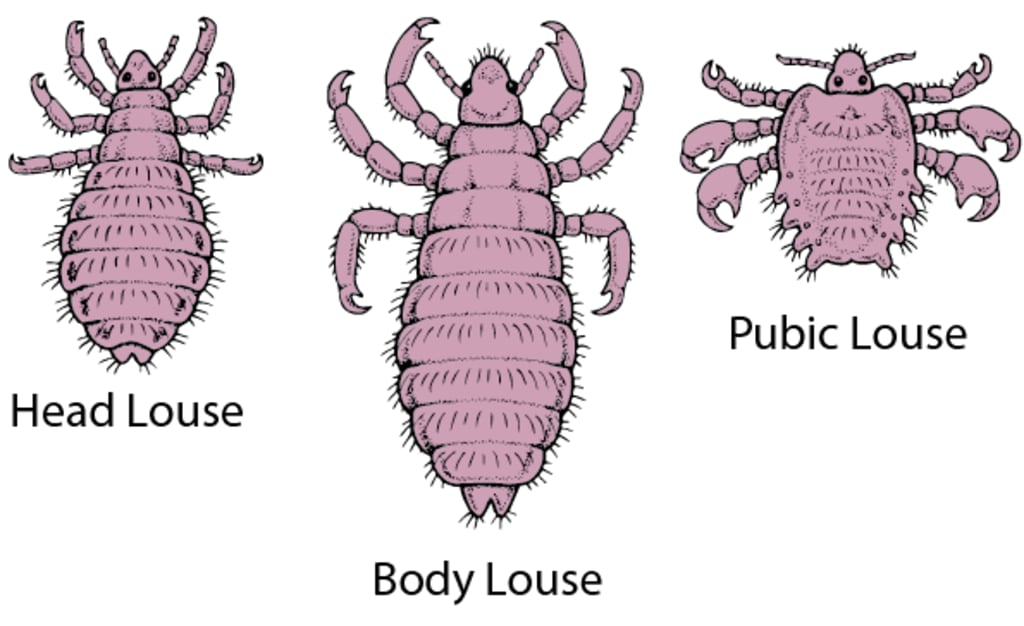
WHY LICE ARE HARD TO KILL
I wasn't sure if I should write this article, because it's not a part of my niche, and I wasn't sure anyone would want to read it, but I am doing it anyway, i hope you enjoy reading this.
Ancient Egypt was an uncomfortable place to live, but you might not have known that.
Lice were everywhere.
While other Egyptians would shave their entire bodies to attempt and get rid of the parasites, Cleopatra was interred with solid gold lice combs. We've had this issue for a while, and it's unlikely we'll resolve it very soon. Since our ancestors first diverged from chimpanzees seven million years ago, humans and lice have coexisted, and we've been aching to get rid of them ever since.
Did you know that there are 532 different species of lice, crazy right? but let's focus on the one that affects people the most: HEAD LICE.
They have six legs, and each of them has a little hook at the end that allows them to climb from one head to the next, grab hold of your hair, and then quickly descend to your scalp where they will feed on your blood multiple times every day. And once they've settled there, lice are difficult to detect.
For instance, adult lice are about the size of a sesame seed.
While nymphs or baby lice are a small portion of that size.
The color of the hair around them helps lice blend in well with their surroundings.
In addition, your scalp is the perfect place for them to breed and You can't stop them from making your head their home and that's usually the biggest problem. There's a common misconception that people who don't wash their head regularly are more likely to get head, lice that's totally false lice are born survivors so it's enough to touch the
head of an affected person to get them
crawling in yours by next week sometimes
it's even enough to wear someone else's
hat, although that happens more rarely
lice love places where it's warm and
humid and your head and hair are exactly
the surroundings they adore most also
there's plenty of food under your skin.
YUMMY!.
A female louse can lay up to eight eggs in a single day. It just takes a week for the eggs to hatch into baby Laos or nymphs, such a beautiful name for such a creepy-crawler, isn't it? Now, in about fifteen to twenty days a nymph or Laos grows into a full-blown louse which is ready to lay nits of its own, and when it does well you get the picture. There could be dozens or even hundreds of dead lice persisting on your scalp, despite the fact that it's uncommon to detect more than 20 live lice on any one head. This time whatever you do you'll probably fail in the war against these miniscule beasts, and The fact that they are difficult to get rid of is perhaps even worse
Lice have an eight-hour breath-holding capacity.
So they won't be affected when you take a shower or swim.
They are infamous for acquiring pesticide resistance as well. Crazy right?
For instance, in order to prevent typhus caused by lice during World War II, military personnel dusted millions of Europeans with DDT.
And because we used it excessively, lice developed tolerance to the poison.
We are still suffering the effects of it now.
Since many over-the-counter shampoos and lotions employ DDT-like killing processes, lice may become more resistant to these treatments in some areas.
However, scientists are responding.
When first over-the-counter treatments fail, doctors have created new weapons of assault, such as ivermectin lotion, which paralyzes lice by upsetting their neurological systems.
Of course, the cheapest and safest bet is to shave your head like the Egyptians.
However, let's be honest—the majority of us probably can't carry off that look.





Comments
There are no comments for this story
Be the first to respond and start the conversation.